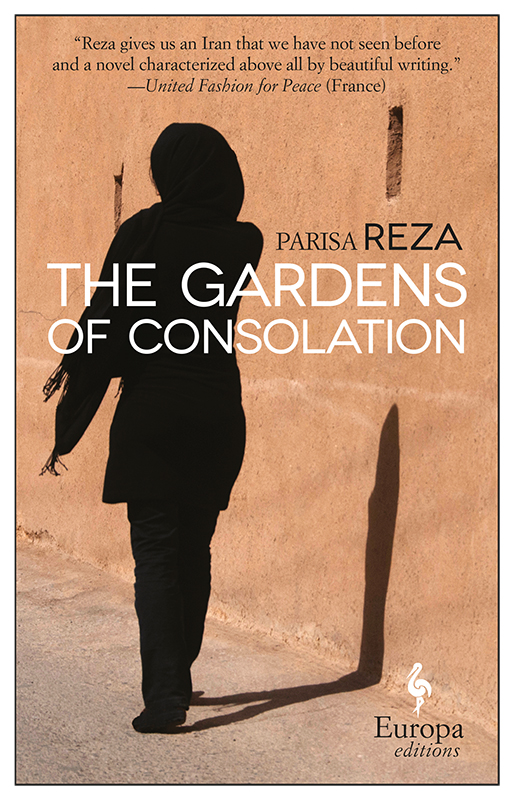
The Gardens of Consolation
کتاب های مرتبط
- اطلاعات
- نقد و بررسی
- دیدگاه کاربران
نقد و بررسی

Starred review from October 3, 2016
Iran’s early 20th-century political upheavals drive this absorbing debut novel about a working-class couple and their gifted, socially ambitious son. The novel, by Iranian author Reza, opens in the early 1920s, with young newlyweds Talla and Sardar Amir traveling from their native Qamsar to the suburbs of Tehran, where Sardar has established himself as a shepherd. For the couple, who are illiterate and unworldly, the migration proves emboldening but also disorienting. Sardar is gripped by the “contained suffering that went by the name of exile,” and Talla bristles at unfamiliar class hierarchies and fluctuating customs regarding chadors. They later move to Shemiran, where they raise a son, Bahram, who begins “breaking with continuity” of his parents’ provincialism. Under a mandate from Reza Shah, Bahram begins attending school at six and quickly finds himself to be an avid pupil. After receiving his village’s first high school diploma, Bahram goes on to attend the prestigious Tehran University, where he becomes involved in the National Front, a nationalist party. Reza, by weaving intimate domestic details with explications of Iran’s shifting fortunes (the nationalization of the country’s oil and the overthrow of Mosaddegh feature prominently here), succeeds in imbuing the Amirs’ story with stirring sociopolitical importance. She is uncommonly generous to her characters, and Talla is a formidable, hard-to-forget heroine.

October 1, 2016
Love, lust, and politics can sometimes exist harmoniously. They can also clash.In the early 1920s, when Talla was 9 years old and living in Ghamsar, Iran, she married Sardar, a slightly older boy from the same remote village. Although it was an arranged marriage, in keeping with tradition, the two had eyed one another and approved the match. And although the union was not consummated until three years laterSardar had big dreams and opted to travel to the nations capital and establish himself before settling into domesticityby the time they moved to a Tehran suburb as husband and wife, it was clear to everyone that they were in love. There was heartbreak, too, as they lost one child and then another. Finally, in 1933, son Bahram was born. Not surprisingly, he became the apple of his parents eyes and was heavily indulged. Unlike his illiterate mother and father, Bahram attended school and excelled, eventually winning a scholarship to university. He also became a womanizer, and the novel charts the factors that led him there. The book is set against a constantly changing political milieu, and readers are made privy to the fall of the Qajar dynasty and the power grab of Reza Khan, who emerged as shah. Bahrams support of socialist Mohammad Mosaddegh and Khalil Maleki, men who eschewed alliances with both Russia and the West, is posited in opposition to the ideas of Sardar and Talla, peasants unconcerned with politics. As they see it, life is unchanging; regardless of who is in power, they will toil and, later, revel in simple pleasures. The contrast is riveting. Winner of 2015s Prix Senghor for a debut novel by a Francophone writer, this compelling book raises important questions about indulgence, gender, community, and the impact of politics on everyday life.
COPYRIGHT(2016) Kirkus Reviews, ALL RIGHTS RESERVED.

October 1, 2016
A Prix Senghor 2015 winner by Tehran-born Reza, who came to France as a teenager in the 1980s, this debut opens in a remote mountain village in 1920s Iran. When teenage Sardar marries barely pubescent Talla and takes her away to live on the outskirts of Tehran, she becomes the first female to leave the village and is thereafter spoken of with awe. Sardar's a steady man and Talla rather a blazing temperament, and they eventually have a son, Bahram, who's smart, cheeky, and a devoted follower of progressive politician Mohammed Mosaddegh. Social and political upheaval go hand in hand, as Sardar becomes entranced by radio and Reza Shah Pahlavi comes to power and bans the chador, horrifying Talla not because of religious conviction but her fear of the unknown. Reza thus provides a carefully wrought lesson in 20th-century Iranian history. VERDICT Informative but not didactic, this book reads like a popular saga, simply told and with recognizable characters whom many readers will appreciate.
Copyright 2016 Library Journal, LLC Used with permission.

November 15, 2016
Iranian French author Reza's first novel is a gripping account of Iranian history viewed from the perspective of the Amir family. We meet Sardar and his bride, Talla, as they set out from their small village, Ghamasar, around 1920. The story of the ebb and flow of their marriage, their son, Bahram, and their growing prosperity is intertwined seamlessly with Iran's mid-twentieth-century turmoil, an inside-out view that offers fascinating and invaluable insights that reach far beyond newspaper headlines. Reza's use of the Iranian calendar is a subtle reminder of alternate versions of recording history. Her characters demonstrate that complex and endearing human beings are at the core of all historical narratives, and that while leaders come and go, everyday lives have their own trajectory. Hunter's excellent translation allows English readers to enjoy how Reza effectively interweaves vivid storytelling and insightful commentary. This engaging novel is a must-read for anyone interested in trying to understand the true nature of Iran, a country often demonized in the West but that Reza reveals as a place of universal human experiences.(Reprinted with permission of Booklist, copyright 2016, American Library Association.)

























دیدگاه کاربران